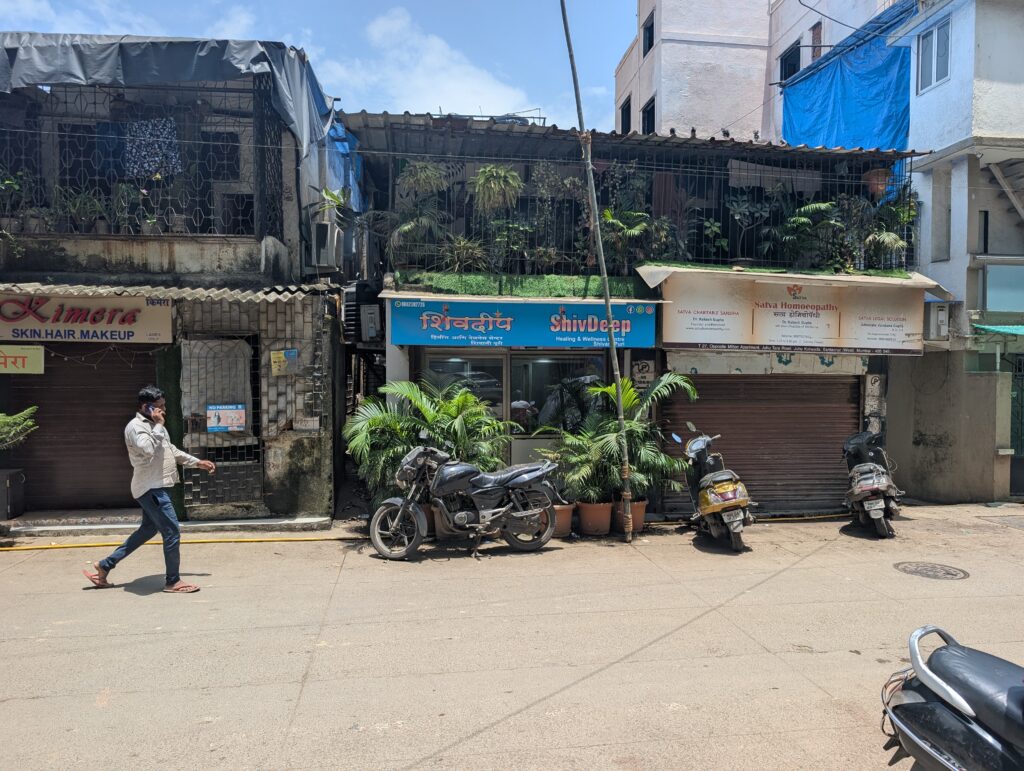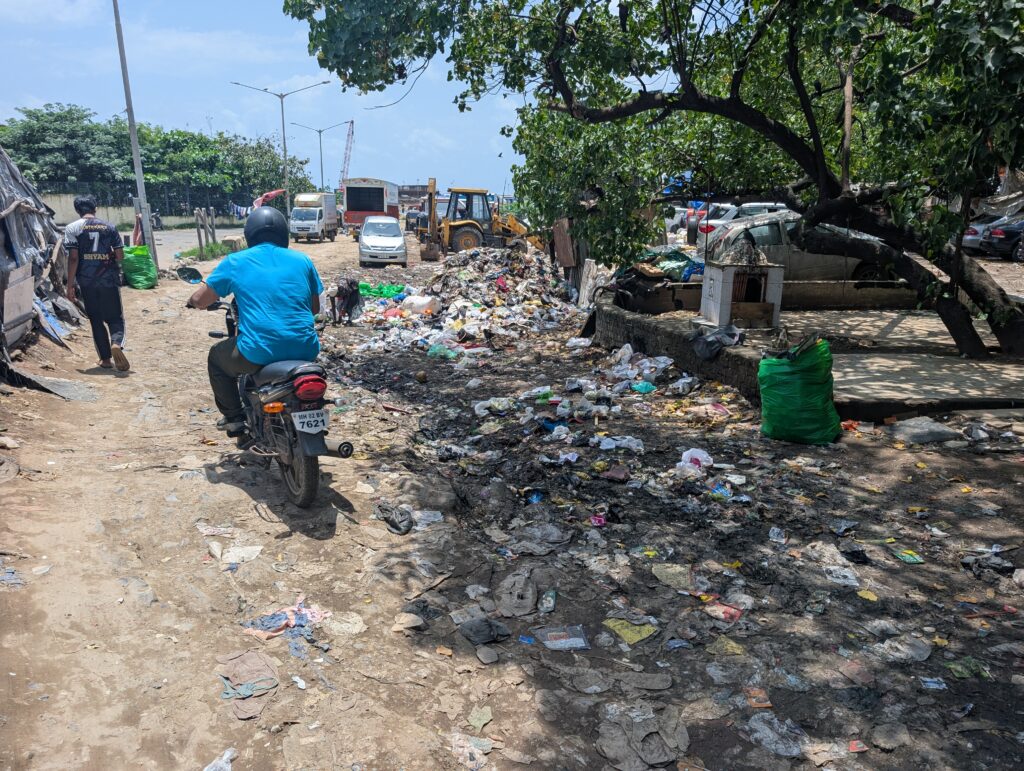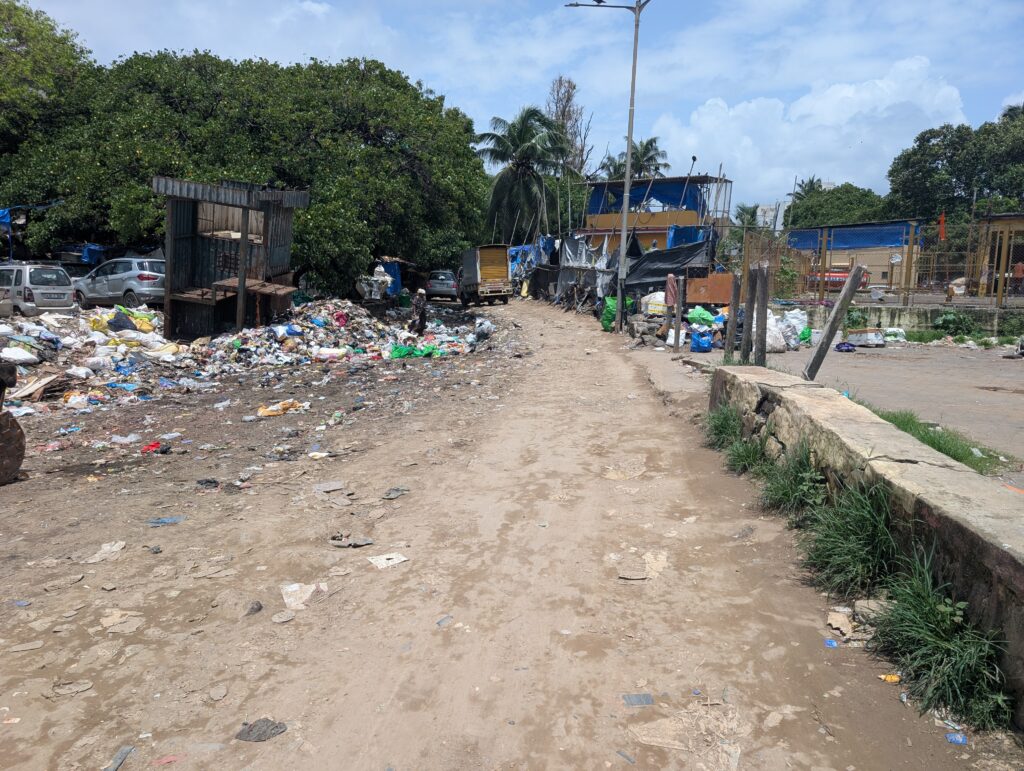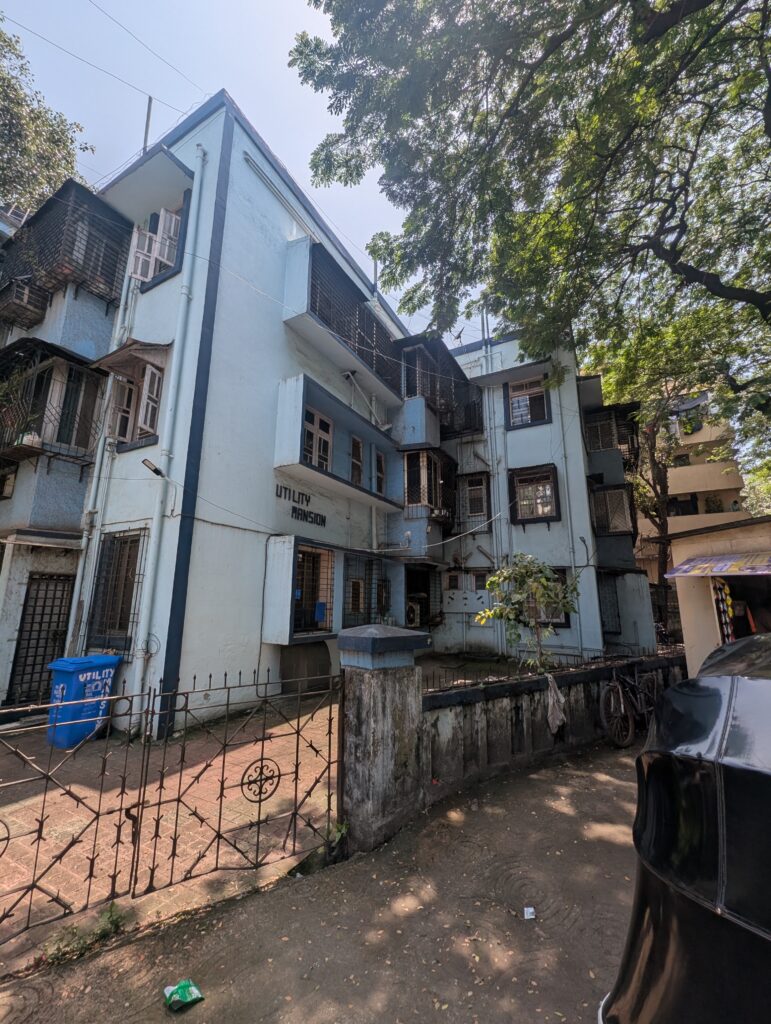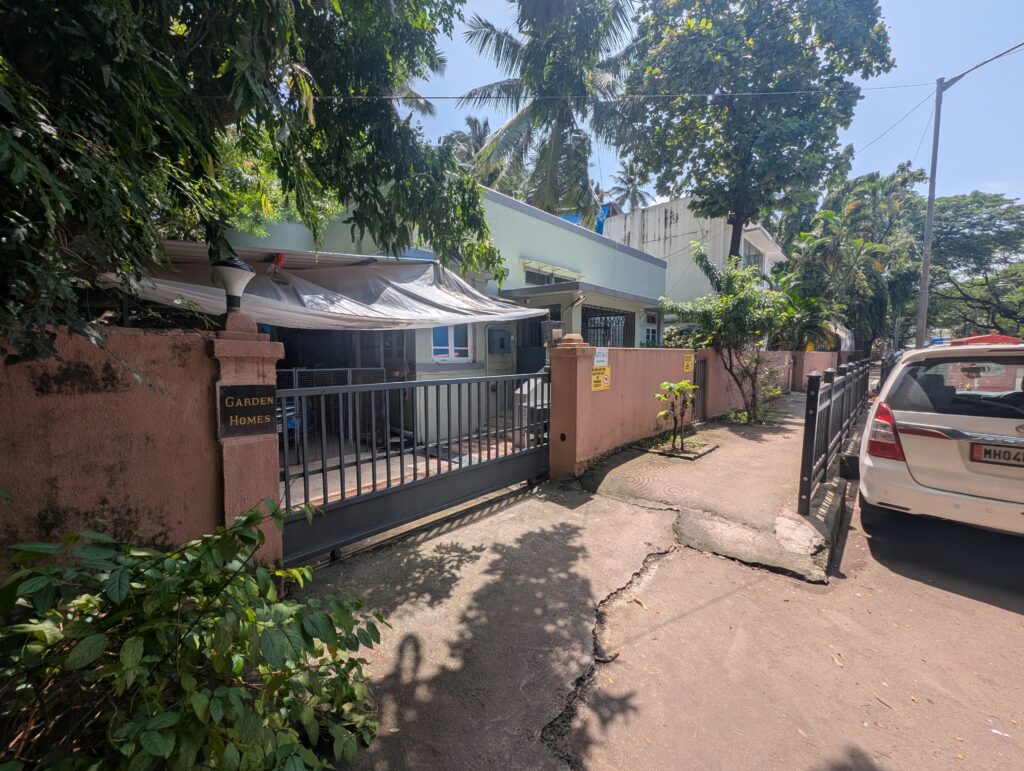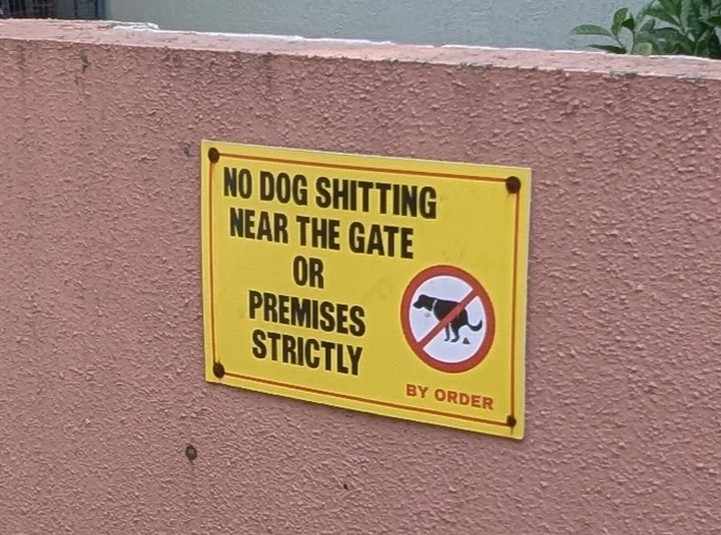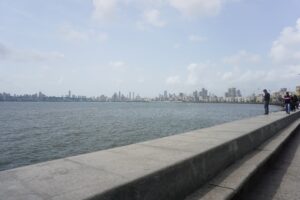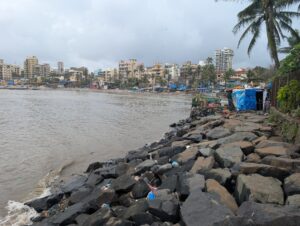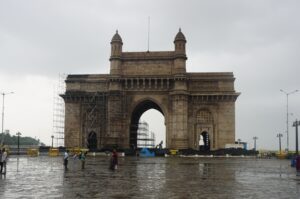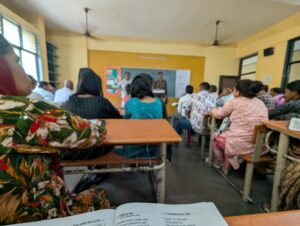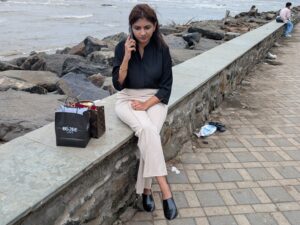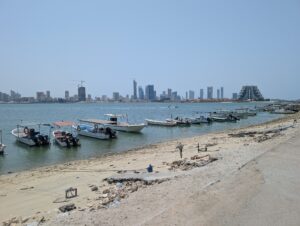Juhu
Through a Slum to Another "Upscale" Neighborhood
My day started a bit late each day I stayed at GoSolo Hostel in Bandra. The place served hot, home cooked breakfast of a different sort every morning. The catch was that it didn’t start until 9:00. I was not able to sleep all that late. My body clock just would not allow it. So I got up, wrote Stephanie a love note, sometimes wrote about my previous day, and awaited breakfast. I then set out each day at about 9:30 or 10:00.
On Monday, I decided I would explore Juhu. Juhu is within walking distance of North Bandra. Like Bandra, Juhu has a reputation for being a playground of India’s rich and famous. You can supposedly catch glimpses of Bollywood stars going about daily life there. The buildings are likewise supposed to be fancy and impressive. I was pretty sure I would not recognize a Bollywood star even if I saw one, and I am not generally one to revel in the experience of staying where the glitzy crowd would. Part of me was curious, though, to know what “fancy” looked like in Indian terms. I had seen what Indian poverty looked like. How would Indian wealth compare?
I learned more from the entire day in context than I did from Juhu itself. My walk that day reinforced my general impression of India, as I expressed it in my 2024 article (link). India has an overwhelming amount of everything – culture and crud; beauty and filth; spectacular cities and slums; friendly people and con artists. Virtually all of this was on display as I walked to Juhu Monday morning. As you head north from the hostel, the first thing you walk through is a slum of winding alleys, stray animals, balls of loose electrical wires and who knows what all else. The path I walked led to a narrow footbridge over the river you have to cross to leave Bandra going north. The river is black and has a distinct odor. Where you can see anything down into it, what you see is floating pieces of trash. Never have I put more hope and faith into a bridge!
Beyond the bridge lay a wide, open area that looked like it washed out from time to time. You could see the ocean in the distance, along with construction rigs and the occasional apparently abandoned rickshaw here and there. After a few hundred yards, I entered what was unquestionably the Juhu city dump. There were stacked trash bags everywhere. I would have wondered if I was off of the path. I was following the Google Maps directions, though, and there was a steady stream of rickshaw and motorbike traffic joining me from this point. The path through the trash dump seemed well worn. There is trash here and there all over India, but this was definitely a place where it had been collected and brought. There was that much.
Suddenly, after about three hundred meters of winding through stacks of plastic bags and refuse, the road straightened out and entered an older, but very well kept street with shops, restaurants, and motels on the bottom levels. Another three hundred meters and I was among the very tall multi-level hotels and apartment buildings. Most of them looked quite nice on the outside. These hotels were right along the beach. I jogged over between them when I found an opportunity and walked along the beach. These nicer motels seem to have been designed to take advantage of the views, rather than direct beach access. Most of them had walls between their pools or courtyards and the beach. That made sense as I looked at the beach. The entire length of the beach was littered with trash washing up and floating back on the Arabian Sea’s tide.
(Continued)
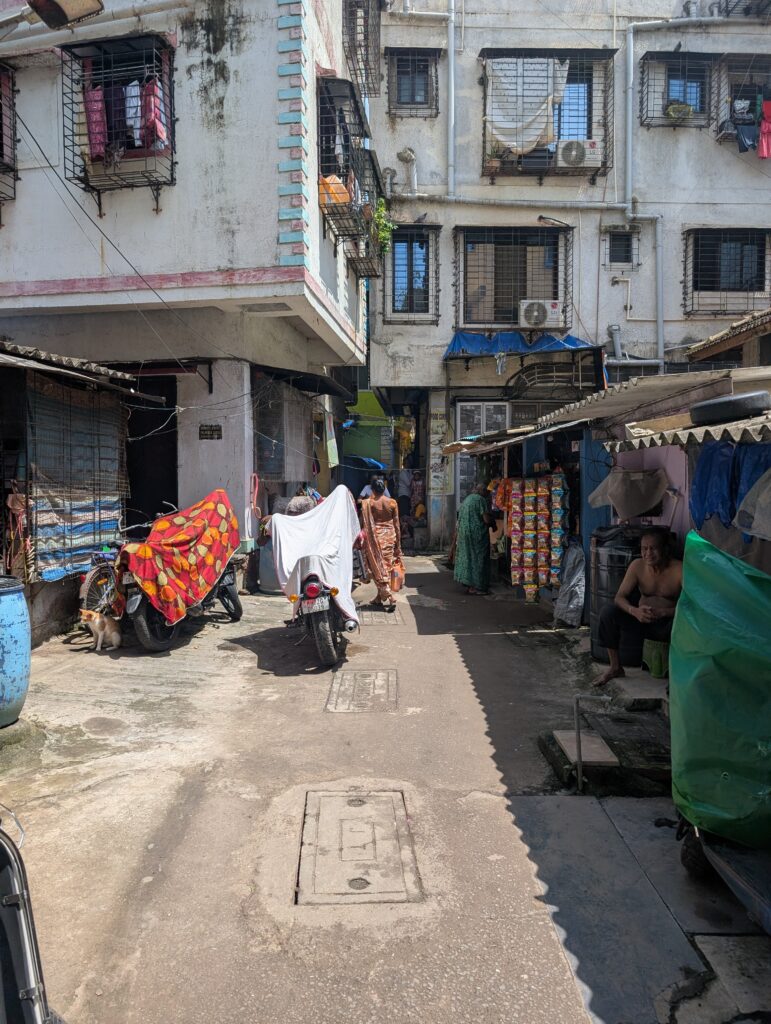

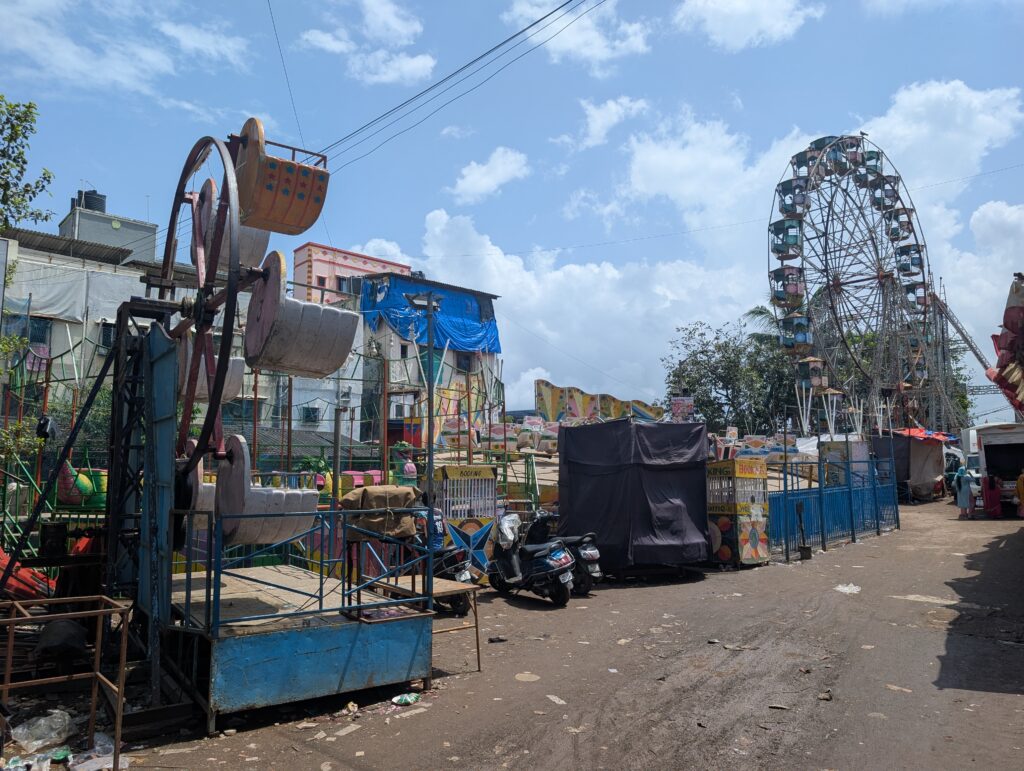
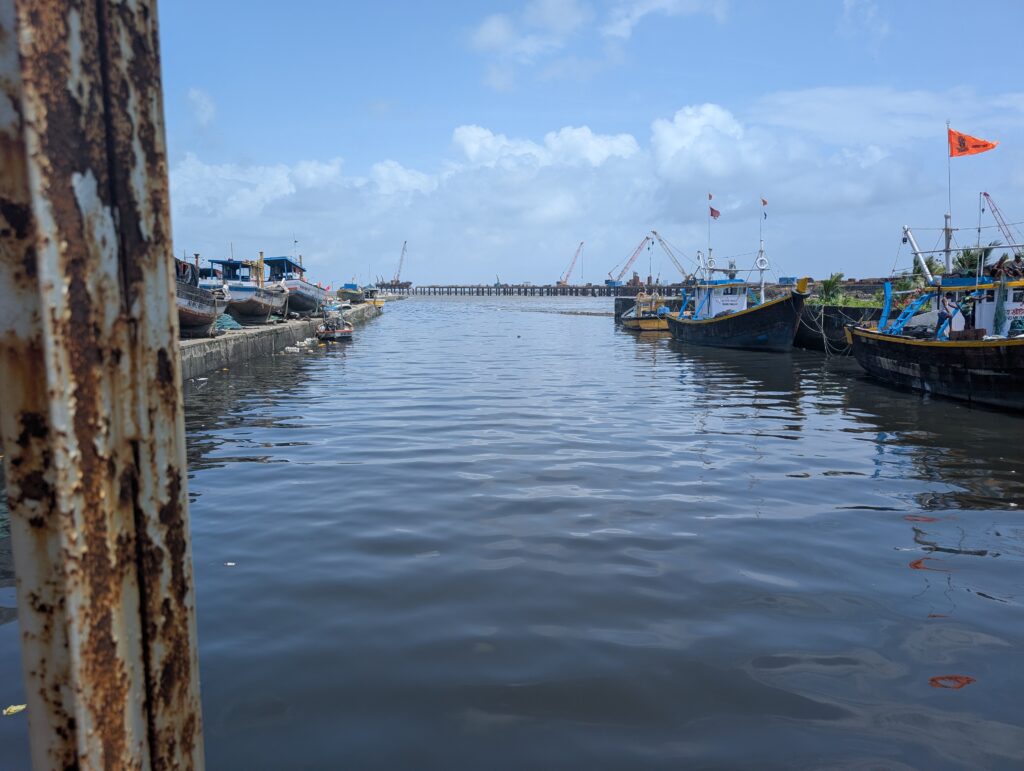
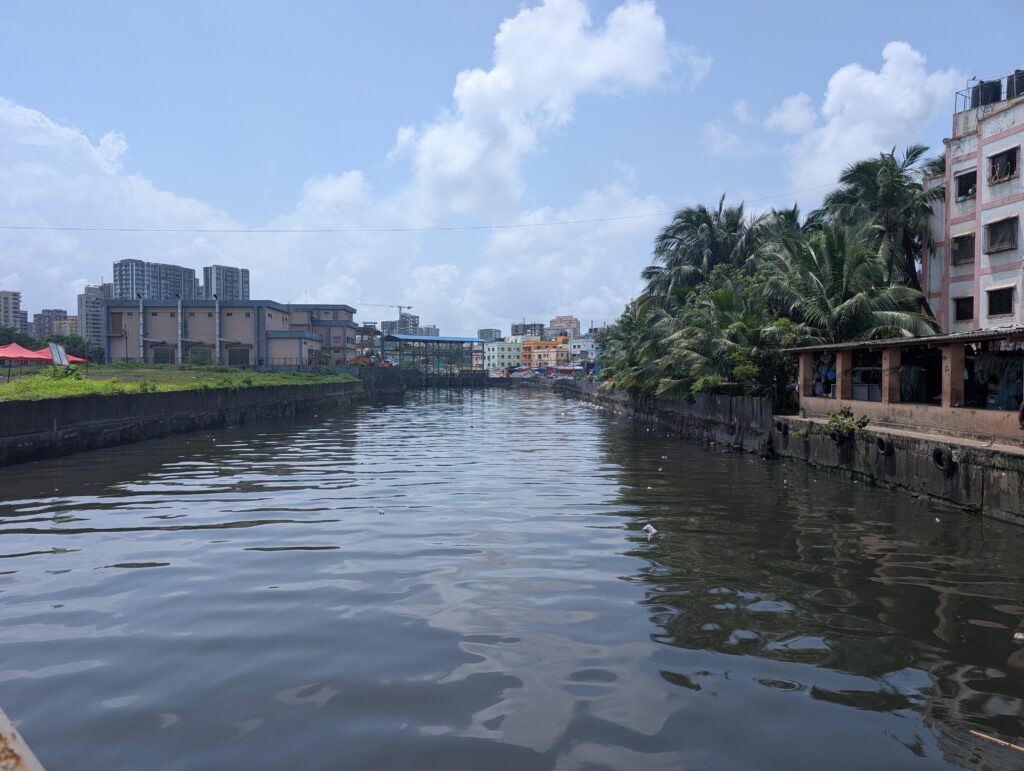
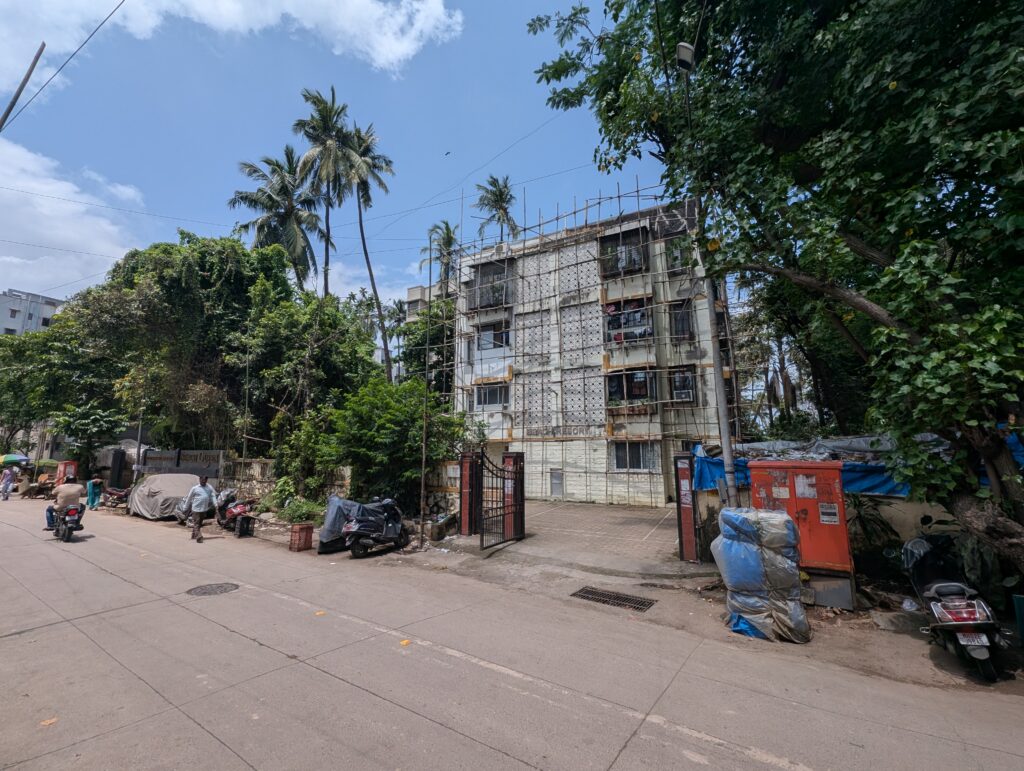
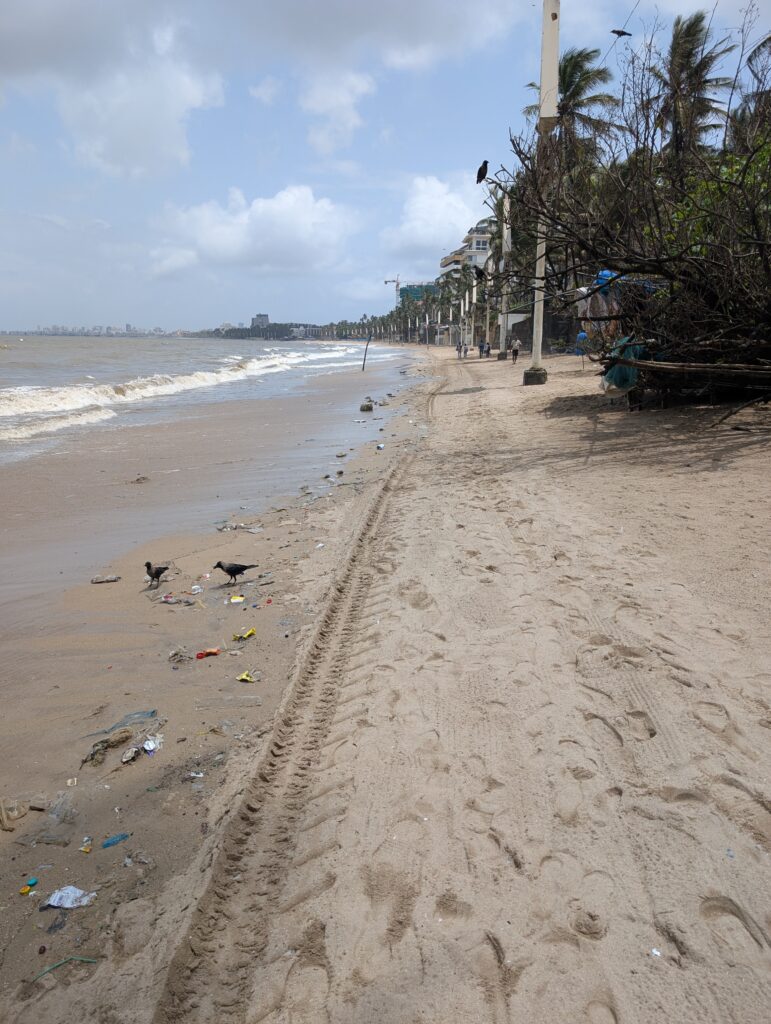
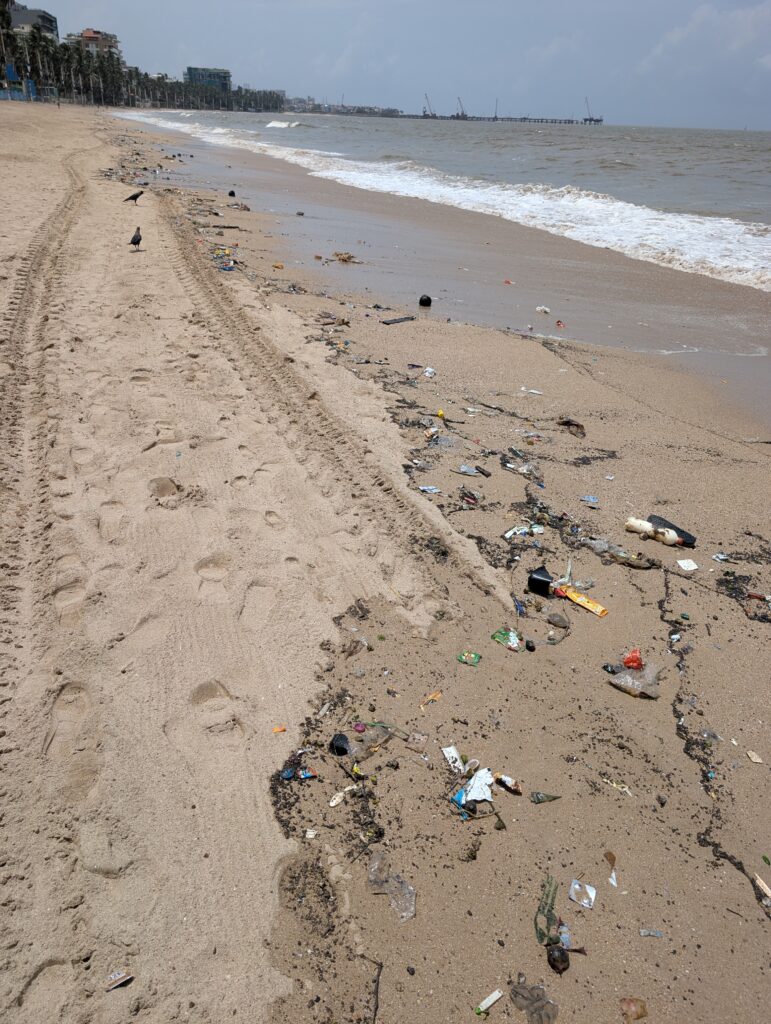
After quite a while walking along the shore I reached Juhu’s public beach. It wasn’t a lot cleaner. There were quite a few food vendors there. I was also approached by people selling all sorts of souvenirs. There was also a small army of self-styled photographers there. Indians love posing for pictures and selfies. These camera men, carry with them nicer looking cameras. Many of them even have portable printers. They will snap some shots in this famous locale, and sell you the prints on the spot! Women also offered to sell me flowers or small crafts. Many of them appealed to sympathy or benevolence, citing a sob story about how badly they needed money as best they could in English. A disproportionate number of women had lost husbands, were pregnant, or had babies to feed. This was shamelessly incorporated into the pitch. I also met my most persistent beggars at this beach. One group of small children who couldn’t even beg in English, followed me, hands out for about a mile, repeating a solicitation for funds. Finally, when a taxi driver who spoke English approached to offer me his services, I lamented softly about the begging kids. He said something in Hindi or Marathi that shamed them a bit, and they finally broke off the chase. He was kind enough to take no for an answer on the taxi ride.
There really wasn’t much else for me to do in Juhu. I had walked a couple of the main streets and seen the beach. I certainly wasn’t going swimming there. If I remained in the public area, I would continually be bombarded and accosted by peddlers, touts, and beggars, so I decided to head back. I sweat plenty, so I did stop in at a market to buy a drink or two. The first one I encountered was a very posh, health food store. I couldn’t find anything affordable there, but it was nice and cool, and probably the cleanest looking building I had seen in the entire country of India. That impression was tinged a bit, though, as I left. As I walked down the ramp toward the street, a HUGE rat crossed my path initially, then seemed to want to go into the store. I saw exponentially more rats in Mumbai than any other place I had been on the trip. Even in upscale Juhu, at the nicest store in town, there were still rats!
I was back to the hostel by early afternoon. I decided to write some, and rest during the heat of the day. While sitting in the common area, I noticed a talkative young lady in a spectacular saree eating something that looked delicious. I asked her about the food, which she immediately offered to share. She insisted that I at least try it, and it was some very tasty rice based dish. Like me, she was quite talkative. I soon learned quite a bit of her back story. She was twenty eight years old, and had been involved in several occupations. Recently she had tried to break into modeling and acting. She was currently writing poetry. Her family lived somewhere within about an hour, and she was in town for a job interview. She had worn the saree to the interview, and successfully garnered a job as a personal assistant.
She went off to rest for a couple of hours while I wrote and did some farm business. When she reemerged, she asked if I would want to go with her to buy a couple of professional outfits for her new job. That didn’t sound all that appealing. I am not much of a clothes shopper. I also figured I would be little help in selecting clothes. I initially demurred. I thought it over while she went back to change and prepare to leave. What was it I had originally come to India to do? I was never that excited about seeing Mumbai. I had come for the social interaction and to experience India with locals. Now here I was, about to turn down an opportunity to do just that – albeit in a way that was outside of my interest and comfort zone. The conversations were so enjoyable, and I was learning more about the Indian experience. I decided I would go.
I was sure to tell Stephanie exactly what I was doing, and with whom. She was mildly chagrined at first. She knew I would not be excited about going clothes shopping with her. Upon further review, Stephanie remembered that I had, in fact, gone shopping with her numerous times even though it was not my favorite thing. She eventually understood that I was just doing what I do – socializing with strangers. I am so glad that Stephanie understands me well enough not to give me grief about things like this – at least not much.
(Continued)
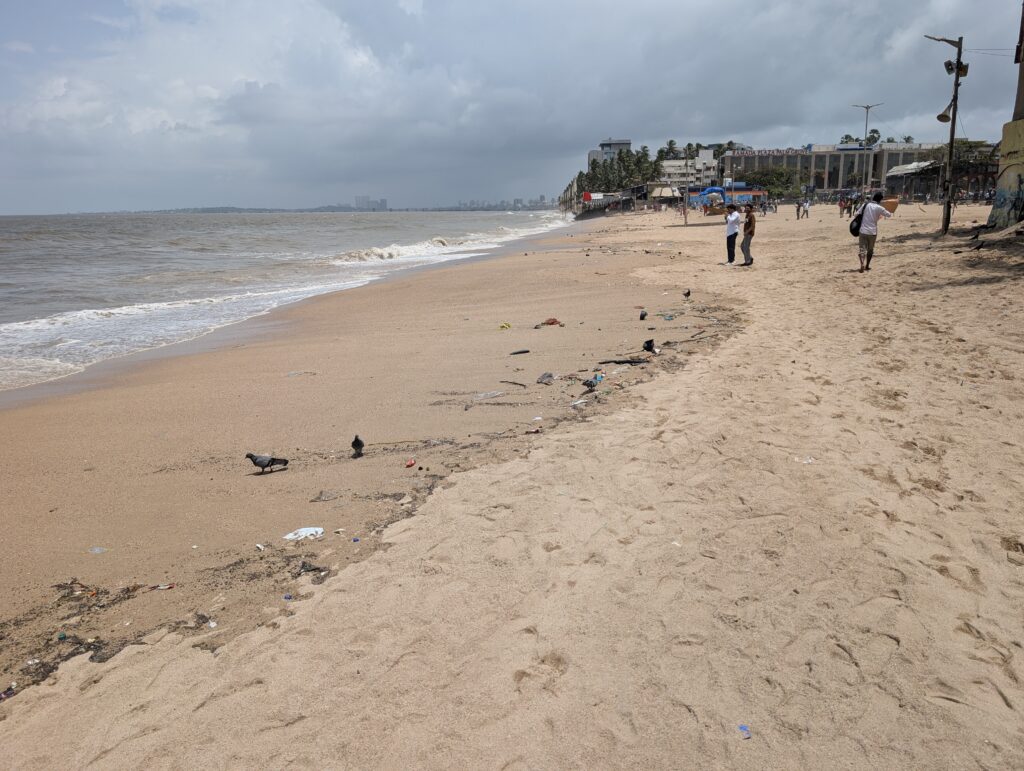
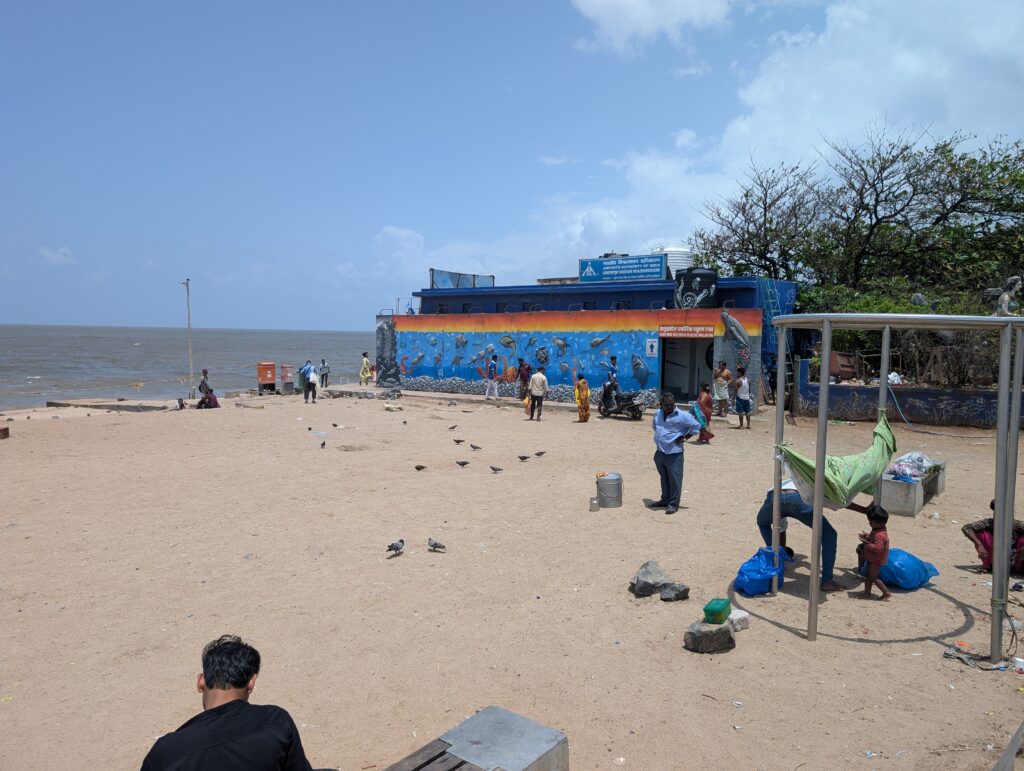
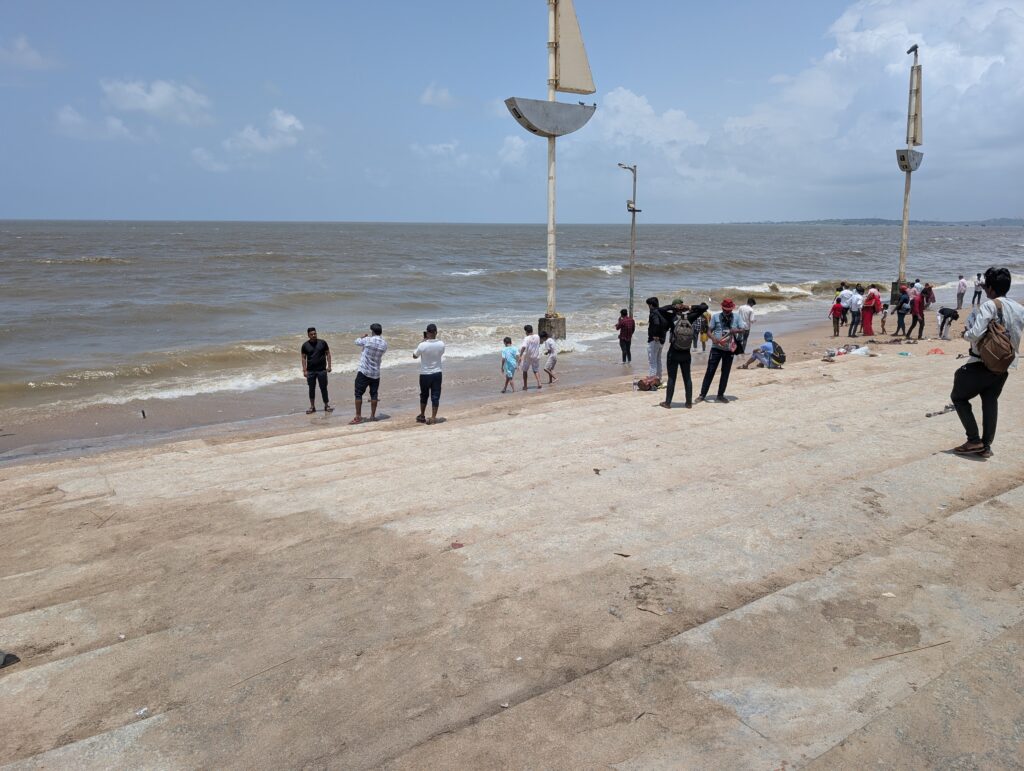
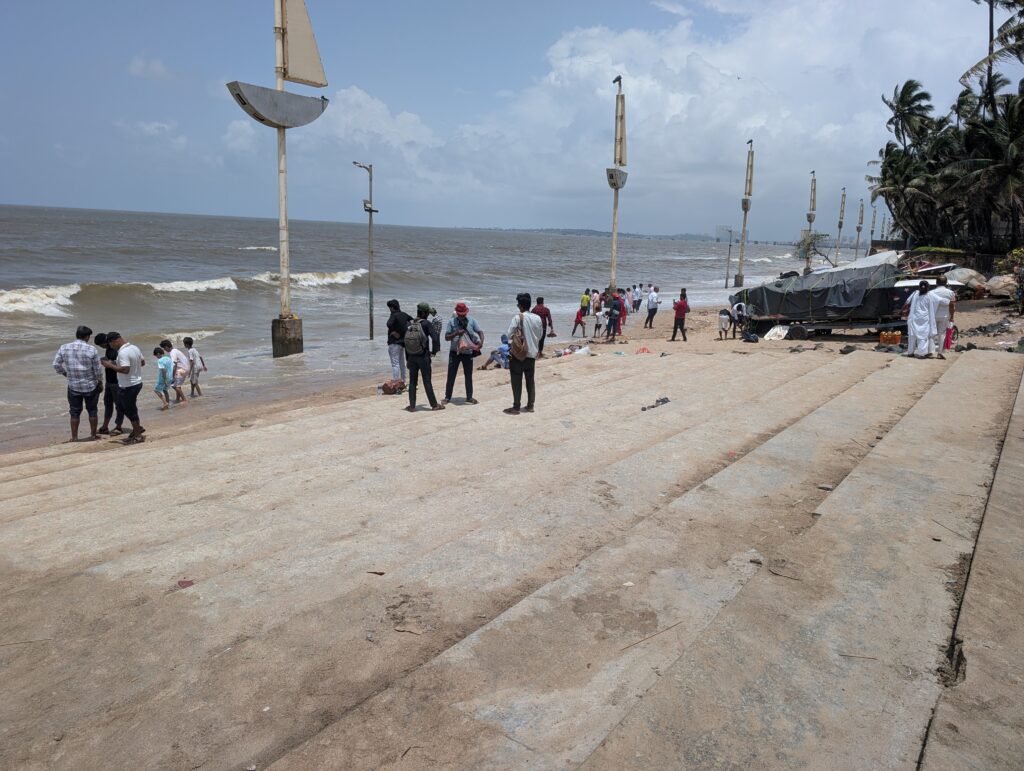
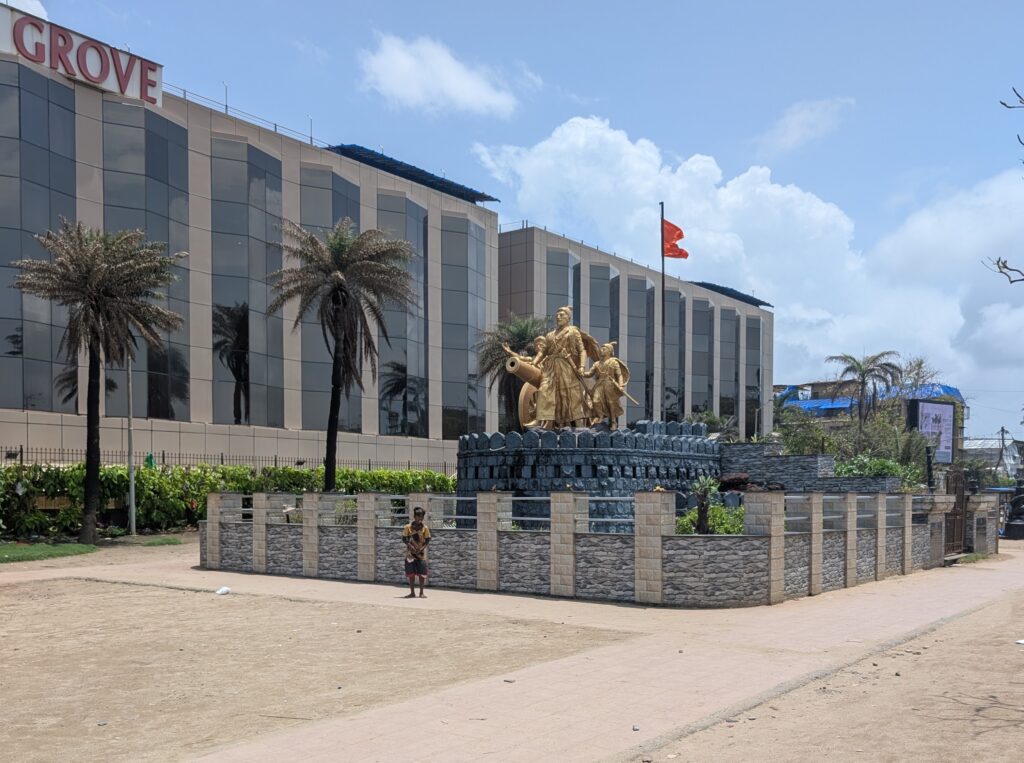
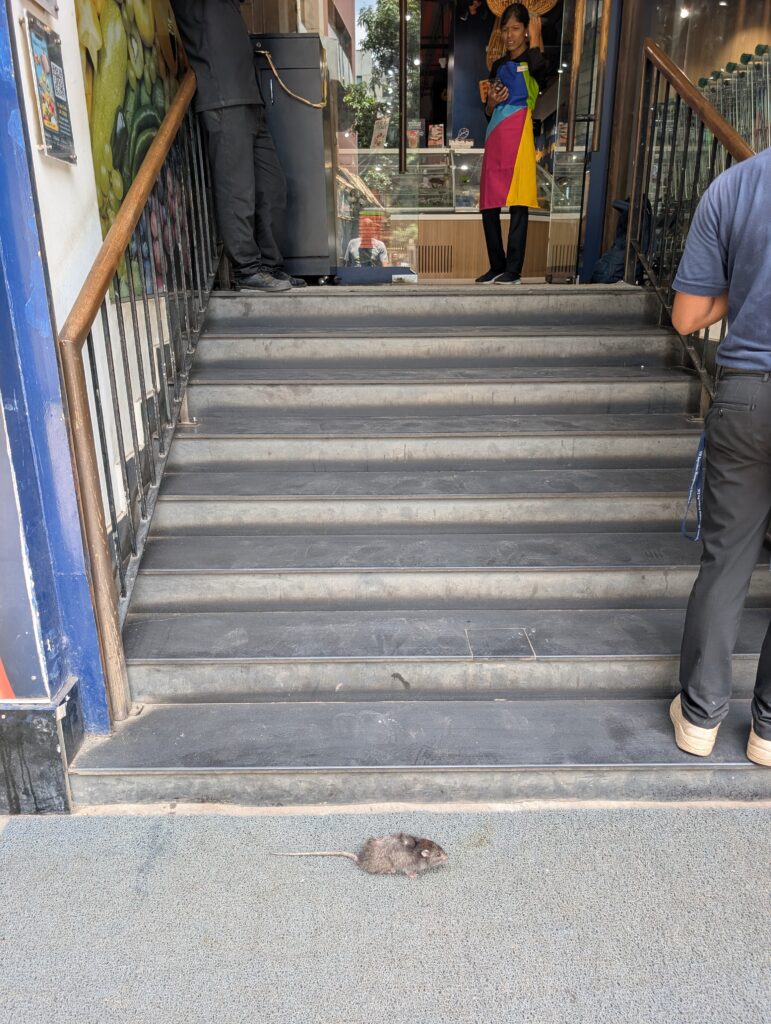
Throughout the course of the evening, my new friend Juhie (Jasmine) taught me so much about traditional Indian culture and family expectations through her own experiences, without even knowing that’s what she was doing. When at age 25 she was not yet married, her parents arranged a marriage for her. Arranged marriages are apparently still very common in India. There is some ceremony by which the couple is committed to one another sometime before the actual marriage. After careful consideration – and also well after this commitment ceremony – Juhie understandably got cold feet. She withdrew from this arranged marriage before it happened.
As a consequence, all of Juhie’s family members on her father’s side refuse to talk to her, even three years later. She was no longer living with the parents, though I was unclear on whether or not this was voluntary or a result of the dissolution of the arranged marriage commitment. She told me also that she has epilepsy. She takes medication to control it, but she cannot drive and has some other limitations. She feels ostracized about this, as well. She has had a lot to overcome, but seemed to have accomplished a remarkable amount in her short adult life. She seemed quite independent, but had some doubt about direction of life, relationships, and just generally seemed to need some reassurance as occasional direction. She apparently got some grief from her father (understandably) over shifting careers so often.
She appeared to be financially independent. Nothing she ever said or did around me indicated that she desired money from me. On the contrary, since she didn’t want to walk anywhere over about 100 meters, she insisted on paying for the rickshaws around to the different shops. She had plenty of money for her clothes, and had nicer taste in food places. I refused to let her buy me food though she tried, explaining that I was a guest in her country. It was difficult to get her to do anything beyond splitting bills, or trading off paying them. This whole concept was almost unique in my Indian experience. Most people I met in India or Sri Lanka either wanted to sell me something, swindle me, or ask me for money.
Speaking of money, Juhie reinforced one other stereotype I have about Indians. She was absolutely fierce when it came to dealing with vendors, taxi drivers, and anyone else with whom she entered a business transaction. She sounded almost angry negotiating prices. She called an absentee store owner of one of the clothing shops on her mobile to complain and haggle. Once when I had ordered a rickshaw, I decided to let the driver keep the change as a tip. She refused to allow the poor driver to keep my tip. She barked something at him in Hindi or Marathi (I didn’t know which), and compelled him to hand back my 14 rupees of change. That’s sixteen cents! She tipped him something, apparently less than that. But she made him hand me back my fourteen rupees. Not being able to speak the language, I could not even effectively protest. I tried in English, to no avail.
We went and had coffee (I ordered a frappuccino of course), and then went to watch the sunset on Carter road. Carter road is the fancy part of Bandra, where the promenade makes its way down the coastline in front of the nicest shops. I listened to the life story, and offered fatherly advice where I could. I marveled at the story about the arranged marriage. I listened to her excitement about her new beaux. It was a pleasant experience, something not far removed from the kind of human interaction I had come to Mumbai for in the first place.
In a different circumstance, the scene could have been romantic. Here I sat, next to this beautiful girl, sharing her life experiences as we watched the sunset on the Carter Road promenade, one of the most iconic and exclusive places in India. Of course, it was a very different feel. I showed pictures of my family, and asked about her love interest. When she opined about the difficulty of romantic relationships, I commented that it took a lot of work. I explained how I wrote love letters to Stephanie every morning, describing something different each day that I love about her. So there wasn’t the slightest hint of romance or flirtation.
It had all the makings of a romantic setting though. At least, it did before I got my reminder that we were most definitely still in India. As I sat there in one of the most esteemed places in India, next to an aspiring model along the promenade, I looked down at the rocks that lay between the promenade wall and the Arabian Sea. As darkness fell, people hopped from one rock to the next with their cell phone lights on to find their was back to the shore. Packs of feral dogs waded on the rocks and through the water. Between the boulders, there was plenty of trash still visible. And as Juhie told me about her boyfriend, her job interests, her defunct arranged marriage and all of the family strife that came of it, I watched another large rat waddle back and forth between two big rocks about 2 meters away.
That’s India in a nutshell; friendliness, beauty, and potential right alongside filth, poverty, and trash; an overwhelmingly good experience coupled with overwhelming difficulty and problems. It is far from a perfect place, but I like it.
